Papua New Guinea Opposition leader Joseph Lelang has urged Prime Minister James Marape to reject a report by the international atomic energy agency (IAEA) and oppose Japan’s request to dump nuclear wastes in the Pacific Ocean.
Lelang said the IAEA released a report on its findings in its latest report covering its independent sampling and analysis to assess the safety relating to Japan’s plan to release the treated nuclear waste water from the Fukushima nuclear waste.
He said their report was completely contradictory to the Position Paper released by the Pacific Island Forum (PIF) and the National Association of Marine Laboratories (NAML) in opposing Japan’s plan to dump.
“I am rejecting Japan’s plans to release radioactive waste in the Pacific Ocean outright because it will affect the ocean marine life, it will affect the fishing industry and its markets and the health of our people,” Lelang said.
“The Opposition’s position is clear and we acknowledge the NAML, an organisation made up of 100 member laboratories who are calling on the government of Japan and IAEA scientists to carefully and adequately consider the options recommended by the PIF experts’ panel.”
He said NAML had made their position clear and that they were concerned about the absence of critical data on the radionuclide contents of each tank and the underlying rationale of dilution ignored the reality of biological processes of organic binding bioaccumulation and bio-concentration as well as accumulation in local sea food sediments.
Lelang said it was right on the Government to commit to the Treaty of Rarotonga and Treaty of Waigani of which PNG was a signatory to both and was binding by law.
Meanwhile, International Atomic Energy Agency (IAEA) chief Rafael Grossi on Wednesday vouched for the safety of Japan’s plan to release treated radioactive water from the Fukushima Daiichi nuclear power plant into the ocean after he surveyed the facility.
In a major milestone for the decommissioning of the power plant, destroyed in a massive earthquake and tsunami in 2011, the IAEA said on Tuesday that a two-year review showed Japan’s plans for the water release would have a negligible impact on the environment.
Japanese fishing unions have long opposed the plan, saying it would undo work to repair reputational damage after several countries banned some Japanese food products for fear of radiation. Japan regularly tests seafood from the Fukushima area and has found it to be safe.
Grossi said there were no pending issues, after surveying the wrecked power plant and feeding flounder raised in the treated radioactive water as proof of its harmlessness.
He also inaugurated an IAEA office on site that will monitor the release of the water, which is expected to take 30 to 40 years.
Still, the reality for people, the economy, and social perceptions may be different from the science, Grossi said, acknowledging the fears surrounding the water release.
“I don’t have a magic solution for the doubts and concerns that may exist, but we do have one thing … we are going to stay here with you for decades to come … until the last drop of the water has been safely discharged,” he said.
The Japanese government is looking to start releasing water as early as August.
The plan still needs official approval from the national nuclear regulatory body, which is expected on Friday.
Some neighbouring countries have also raised concerns over the threat to the environment, with Beijing emerging as the biggest critic.
Chinese foreign ministry spokesman Wang Wenbin on Wednesday criticised the move towards discharging the water and threatened action if the plan should move ahead.
“The relevant Chinese government departments will strengthen the monitoring of the ocean environment and inspection of marine products import, so as to ensure the health and food security of the public,” he said, but declined to give specific details on what sort of action the government would take.
China bans seafood imports from 10 prefectures in Japan, including Fukushima and the capital Tokyo. Seafood imports from other prefectures are allowed but must pass radioactivity tests and have proof of being produced outside the 10 banned prefectures.
The United States welcomed the IAEA report on Wednesday.
State Department spokesperson Matthew Miller praised Japan’s cooperation with the IAEA and its “science-based and transparent process”.
To assuage international concerns, Grossi said he will follow up his visit to Japan with a tour of South Korea and the Pacific Islands to explain the water will have no negative impact on the environment.
Prime Minister Fumio Kishida said on Tuesday his country would aim to gain acceptance both domestically and internationally with the IAEA’s endorsement.
Kishida may meet South Korean President Yoon Suk Yeol to explain the water release, when attending the NATO summit meeting in Lithuania next week.
Japan’s foreign minister, Yoshimasa Hayashi, is also preparing to meet his Chinese and South Korean counterparts mid-July on the sidelines of a South-East Asia group summit, the Yomiuri newspaper reported on Wednesday.
Japan says the water has been filtered to remove most radioactive elements except for tritium, an isotope of hydrogen that is difficult to separate from water.
The treated water will be diluted to well below internationally approved levels of tritium before being released into the Pacific.
SOURCE: THE NATIONAL/WIRES/PACNEWS


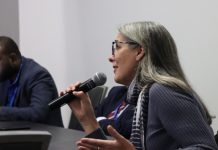
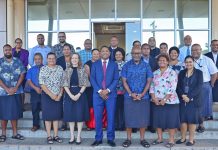
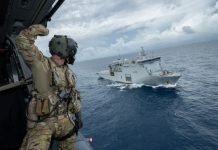
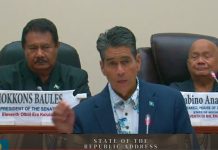
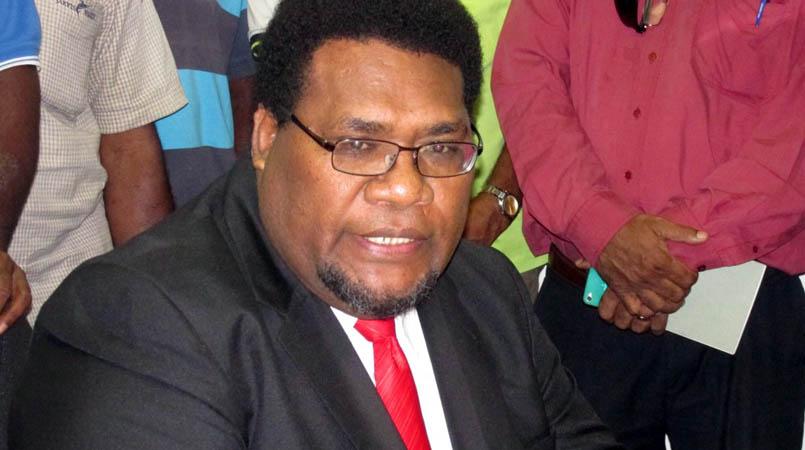
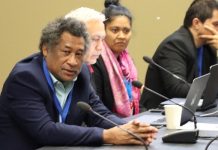
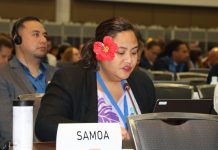






[…] PINA information report cited a paper by the US National Association of Marine Laboratories (NAML), an organisation of greater than 100 member laboratories, that said the proposed launch of the […]